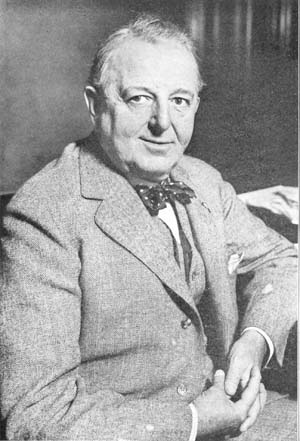
Charles Comiskey was born on August 15, 1859. At age 17 his destiny in life was redirected. While driving a brick wagon in Chicago he saw a baseball game in progress. The pitcher was performing so badly that Comiskey stopped his wagon and went to take his place. It was the beginning of his long career in the sport of baseball.
Two years later, Comiskey played for the Dubuque Rabbits. He made $50 a month playing baseball in the summer. The rest of the year he earned a 20% commission for selling newspapers and candy to Illinois Central Railroad passengers. He started out his career as a pitcher but soon began having problems with his arm. He moved to first base and is said to have revolutionized how the position was played. (Comiskey was said to be the first to play hitters off of first base, allowing him to cover balls hit to a larger part of the right infield.)
In 1882, Comiskey began to play professional baseball with the St. Louis Browns. He played six years for the team and was a playing manager for five of them. He went on to become the owner of a Sioux City franchise in the Western League, which he soon moved to St. Paul. In 1901, the Western League became the American League and Comiskey became owner of a Chicago team he called the White Stockings. It was later renamed the White Sox so as to fit better into newspaper headlines. On July 1, 1910 Chicago opened Comiskey Park, which was to become the home of the White Sox for 81 years.
Charles Comiskey received a lot of the blame for the 1919 World Series scandal. Many baseball historians contend that his treatment of the players led Gandil and then others to take desperate measures to earn what they figured was their due. By any measure, Comiskey was a tightwad. He had promised his team a bonus if they won the 1917 pennant, but all they received for their victory was a case of cheap champagne. In 1918, attendance at baseball games across the country dropped because of World War I. Owners cut players salaries the next year as a result. When attendance in Chicago actually went up, Comiskey refused to bring salaries back to their previous level. While most teams gave their players $4 a day for meals, Comiskey would pay only $3. The White Sox had the filthiest uniforms in the league because Comiskey wanted to cut laundry bills. Comiskey had some of the best players in the country on his team, but paid them all far below what players of comparable talent were earning elsewhere. Charles Risberg and Claude Williams made less than $3,000 a year. Joe Jackson and George Weaver made only $6,000 a year. Eddie Cicotte had been promised a $10,000 bonus if he could win 30 games in a season. When Cicotte closed in on the 30-game goal, Comiskey had him benched to keep him from reaching the mark.
During this era, there was nothing the players could do about their grievances. Free agency did not exist in 1919. All baseball contracts contained a reserve clause. A player had to accept what his team offered or not play at all. No other team would be able to touch them after that. The player would have to find a different line of work.
Following the World Series of 1919 Comiskey offered a reward of $20,000 to anyone who could provide information about the rumored fix. He placed an ad in newspapers across the country. Several people came forward to provide information, including a letter received from Joe Jackson written by his wife, but the reward was never paid.
Comiskey was called as a witness at the trial of the eight White Sox players. He revealed that he had heard possible rumors of the fix during the series. Comiskey was also questioned about the finances of the White Sox team during the years surrounding the scandal. He could not remember exact figures. The defense hit a nerve with Comiskey when they questioned him about possible contract jumping when he was a baseball player. He became irate and was dismissed from the stand.
The White Sox players were represented at trial by some of the most expensive lawyers in the area. However, none of the players had enough money to afford their services. Comiskey, it turned out, paid the attorney fees.
Judge Kenesaw Mountain Landis banned the eight former White Sox players from playing professional baseball for life after their acquittal. Comiskey publicly proclaimed his full support for Landis’s decision. Yet, this destroyed his top ranked baseball team and their dominance of the league soon ended.
Charles Comiskey had two nicknames in his lifetime. Some called him “Old Roman” because of his physical makeup and personal traits. He was known by his friends simply as “Commy.” Comiskey died in 1931 at the age of 72 in his Wisconsin summer home.
--TRACI PETERSON, 3L
